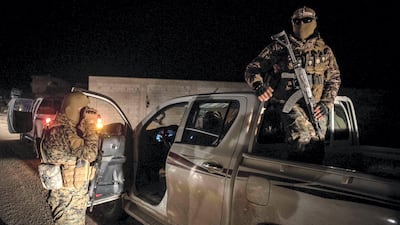2019 served up another year of turmoil in different corners of the world for various reasons. Natural disasters, terror attacks, the continuing wave of populism and clashes fulled by discontent brought suffering, fear and unrest to ordinary people in Europe, the Middle East, Asia and Africa.
The National’s foreign coverage sought to shed light on these events, combining authoritative reporting with new ways into the stories that defined the year.
Here’s a selection of some of the best coverage from the foreign desk in 2019 as we move into a decade that will be in part shaped by these events.
1) The end of ISIS’ territorial control
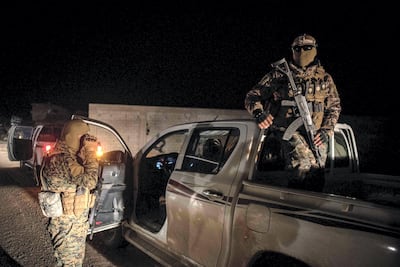
The battle for the last sliver of ISIS territory in eastern Syria reached its conclusion in March. Assistant Foreign Editor Campbell MacDiarmid was there to witness the bombardment of the enclave and the exodus of the last ISIS members inside the group’s final holdout.
He travelled with Willy Lowry to detail ISIS’ pivot from proto-state to global insurgency, interviewing several foreign fighters who sought repatriation, the truckers pulling and detailing the plight of ISIS orphans forsaken in hellish displacement camps.
2) Sri Lanka, diverse tourist hotspot, rocked by bombings that divided a nation
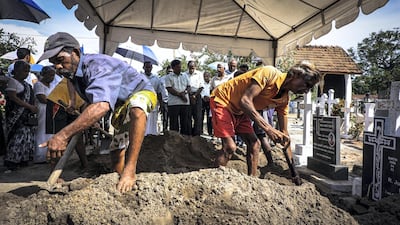
On Easter Sunday, ISIS-inspired militants detonated explosives at three churches and three Western hotels across Sri Lanka, bringing the country to its knees.
With more than 250 dead, it was the largest terror attack the country had faced since the civil war with the Tamil Tigers.
Deputy Foreign Editor Jack Moore and Willy Lowry were in Colombo to gather reaction to the explosions that divided a nation and led to anti-Muslim protests. They then travelled to Negombo, Sri Lanka’s ‘Little Rome’, where the deadliest explosion took place, to speak with the Christian community.
Soul-searching in Sri Lanka as ISIS co-opts attack to boost its image
Sri Lanka’s ‘Little Rome’ grieves in fear after Easter Sunday massacre
3) A new nation: Bashir felled as revolution paves new future for Sudan
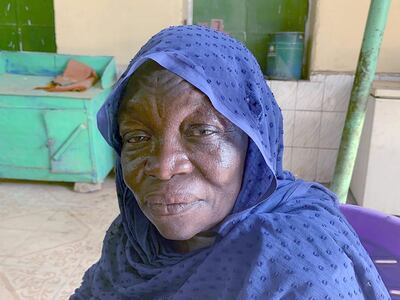
2019 was a year of change for Sudan. Longtime leader Omar Al Bashir was removed from office and replaced by a transitional government, bringing hope to residents who suffered under his rule.
Our Cairo correspondent Hamza Hendawi travelled to Khartoum to report on the revolution taking place after decades of Bashir. He spoke to the tea ladies who hope for a better life in a post-Bashir era, and looked at the women taking a prominent place in Sudanese politics after his removal.
Sudan’s tea ladies hope for better life in post-Bashir Khartoum
4) A cyclone of historic proportions batters Mozambique
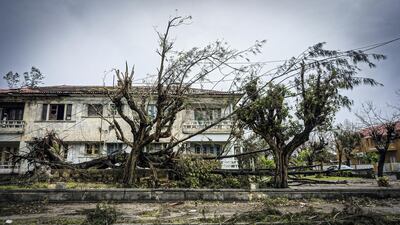
In March, one of the biggest cyclones ever to hit the southern hemisphere landed in Mozambique, leaving thousands homeless, hundreds dead, and hundreds of thousands vulnerable to water-borne diseases.
Deputy Foreign Editor Jack Moore and Multimedia Editor Erika Elkhershi travelled to Beira, the country’s fourth biggest city, to witness the devastation, speaking to those who were affected by the disaster, a morgue working around the clock to deal with the dead, relatives in the capital Maputo about their missing loved ones, and Muslims who were helping the relief effort.
‘It’s a ghost place’: Cyclone Idai devastates Beira, Mozambique’s fourth-largest city
Maputo’s Muslims rally to help Cyclone Idai victims hundreds of miles from home
5) Algeria’s revolution of peace
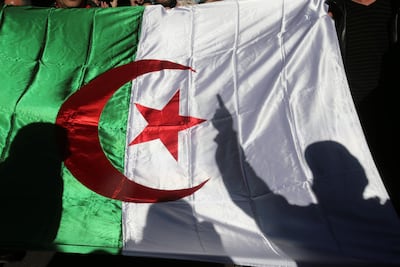
Ten months of protests in the North African country continue despite the fall of longtime leader Abdelaziz Bouteflika. His resignation led to an election this month that was decried by protesters.
Assistant Foreign Editor Liz Cookman was on the ground to speak to the unofficial figurehead of the opposition, and to see how this movement has remained peaceful in the face of the elite’s continuing influence, while other countries such as Iraq and Lebanon have witnessed bloodshed and serious clashes.
Algeria’s protest movement vows to continue its 'revolution of smiles'
Algeria’s year of protest: how the ‘revolution of smiles’ remained peaceful against impunity
6) Italy’s Roma people under the shadow of a far-right leader
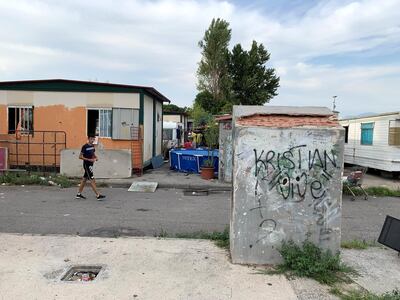
As a wave of populism continues to spread across Europe, minority are becoming increasingly vulnerable to the whims of right-wing and far-right politicians. None more so than in Italy, where Matteo Salvini, who served as Interior Minister until September plotted to evict members of the Roma community from dilapidated camps on the outskirts of Rome.
Reporter Callum Paton travelled to the Italian capital and the camps to speak to members of the Roma community and their fears of Mr Salvini’s planned census and eviction plans. He has since fallen from his position and sits in opposition, but the far-right wave in Italy has not been banished, so their worries ultimately continue.
Half an hour from Rome but a world away: Italian Roma camp 'is an ethnic ghetto'
Italy's Roma people at risk from Matteo Salvini's master plan
7) Lebanon’s year of fire
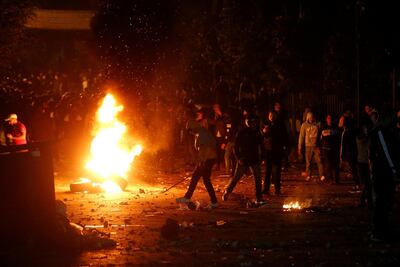
Just weeks after protests in Iraq began, the Lebanese rose up to call for the removal of the country's elite, complaining of economic hardship, corruption and a failure of those in power to provide basic services such as electricity and water.
The demonstrations eventually led to the resignation of Prime Minister Saad Hariri, and the protracted crisis has led to drawn out discussions about a new prime minister, who must be a Sunni, and the involvement of Iran - a prominent backer of Shiite movement Hezbollah - in the country's politics.
Beirut Correspondent Sunniva Rose delivered human stories about the Lebanese taking part in the protests, including a family who bang pots and pans every night to express their discontent and a woman who held up a Lebanese flag every day of the protests in a show of national unity. She also travelled to the conservative northern city of Tripoli with Multimedia Producer Willy Lowry to see how locals were reacting to the unrest. Foreign Editor James Haines-Young reported on a human chain made up of tens of thousands that stretched from the north of the country all the way to the south.
This is Tripoli: A look at protests in north Lebanon
With pots and pans, Lebanese family joins clangour for political change
Walid Jumblatt: I'm against the Lebanese government’s resignation
Lebanon's human chain links a country hand in hand
8) Brexit gets done far from the British mainland
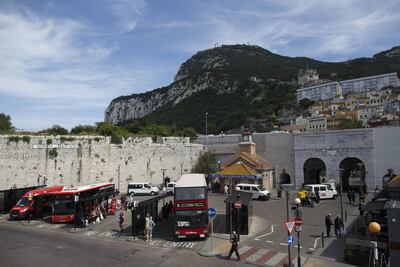
Brexit once again dominated British politics this year, culminating in an election win for Prime Minister Boris Johnson this month. Britain is set to exit the European Union in 2020, but it was already seemingly underway in the British territory of Gibraltar.
Reporter Nicky Harley travelled to the territory where residents have already been stocking food supplies. She spoke to those on the frontline in Gibraltar who feel like Brexit is already happening and that the recent effects on daily life are a snapshot of things to come.
Brexit already happening in Gibraltar as PM tells EU UK’s offer is ‘very generous and fair’
9) ISIS in the shadows: troubled repatriations and a new insurgency
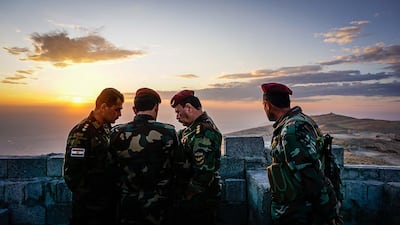
US President Donald Trump declared ISIS defeated in 2019, particularly after the death of its leader Abu Bakr Al Baghdadi in a US special forces raid in Syria in October. He also greenlit a Turkish offensive against the Syrian Kurds. Deputy Foreign Editor Jack Moore and Multimedia Producer Willy Lowry travelled to Erbil to speak to refugees displaced by that offensive, but to also report on fears among Iraq’s Kurds that ISIS is not finished.
They spoke to Peshmerga commanders and Kurdish intelligence officials about the threat posed by the remnants of ISIS in an ungoverned sliver of land between Iraqi Kurdish forces and the Iraqi security forces. They met an Israeli Arab prisoner who shed light not only on the thinking of ISIS fighters after Baghdadi’s death, but also the willingness of states to abandon their citizens.
Shorthand: From Israel to ISIS
The ‘new beginning’ of ISIS: how the militant group is using Iraq’s blind spot to rise again
10) Glimmer of hope in Geneva for Syria
Members of the Syrian Constitution Committee met for the first time in Geneva this year, in a historic bid to start negotiations towards ending the devastating eight-year conflict. UN Envoy for Syria Geir Pedersen, along with the Constitutional Committee co-chairs, Ahmad Kuzbari from the Syrian regime and Hadi Al Bahra from the opposition, launched the start of the committee’s work in an opening ceremony.
The ceremony, attended by 150 nominees from the government, opposition and civil society, was the first time members of the government and opposition have been in the same room since the war began in 2011.
Reporter Mina Aldroubi was in Geneva for the talks, where she spoke to the co-chair of the opposition, and reported on the talks and how Syrian women are seeking equal representation in the Syrian parliament.
Syria's opposition: It is our duty to find a way to live together
Syrian women seek equal say under new constitution
Syria constitutional drafting body begins talks in first step towards peace
